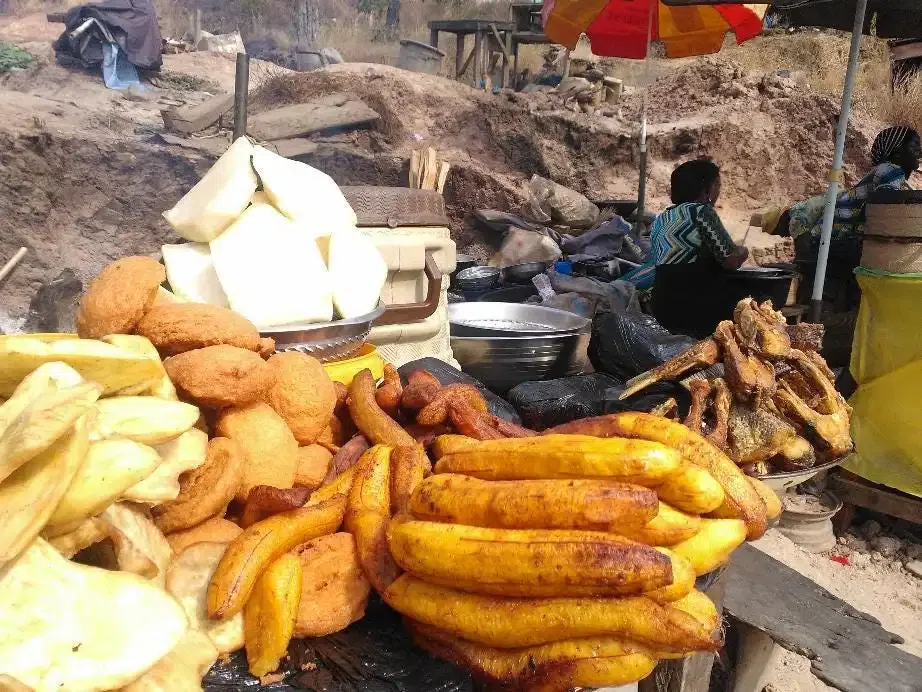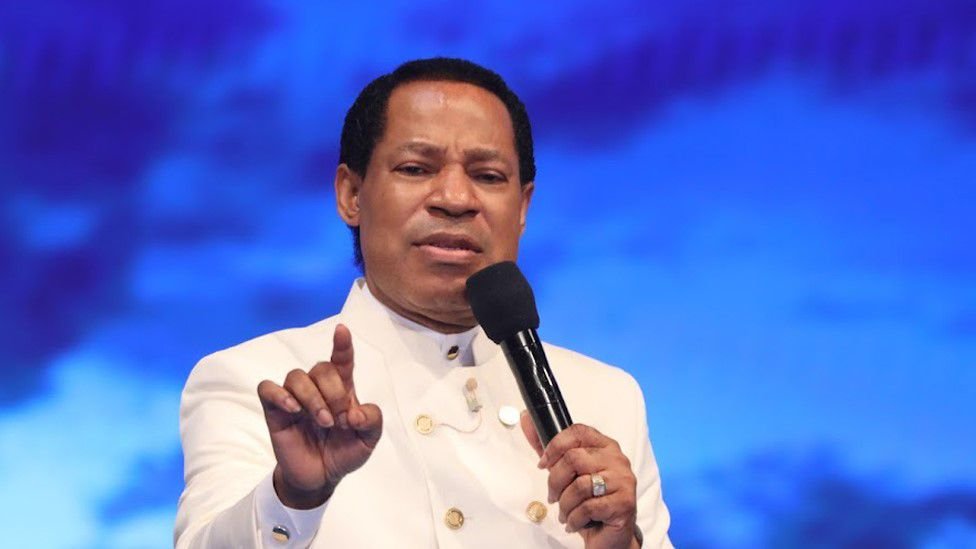Lifestyle
Top 10 Nigerian street foods you should try before you die

Regardless of your class or where you live in Nigeria, you’ll agree that the street food scene is booming.
There’s no Nigerian food or snack you won’t find on the streets. It’s like a culture in Nigeria, and everyone happily indulges.
Beyond satisfying your cravings, it’s also an exciting way to meet people and make new friendships.
Enough of the stories, let’s jump right into why you’re here: top street food options you should try in your lifetime.
ALSO READ: Lagos living: 8 street foods you should definitely try in Lagos
1. Suya
No list of Nigerian street foods is complete without Suya – spicy, smoky skewered meat grilled over open flames. Typically made from beef, ram, or chicken, it’s generously coated in a fiery blend of ground peanuts and spices called yaji. Suya is served with sliced onions, tomatoes, and spicy pepper sauce. It’s a street-side evening favorite.
2. Puff-Puff
Puff-Puff is Nigeria’s answer to doughnuts: soft, fluffy, and slightly sweet. These deep-fried dough balls are golden-brown on the outside and airy inside, often enjoyed as a snack or dessert. Imagine combining it with a chilled bottle of Coke on a sunny afternoon.
3. Boli
ALSO READ: 5 reasons suya is best sold at night in Nigeria
Boli is roasted plantain. It is simple, smoky, and utterly satisfying. Typically grilled over charcoal and served with groundnut or spicy pepper sauce, it’s a favorite among plantain lovers and perfect for on-the-go munching.
 Join Our WhatsApp Group
Join Our WhatsApp GroupDon’t miss out on any real-time information. Join our WhatsApp group to stay updated.
4. Akara
Golden and crispy on the outside with a soft, flavorful inside, Akara are fried bean cakes made from blended black-eyed peas, onions, and spices. Best enjoyed hot, they’re a breakfast staple and often paired with pap, agidi, or bread.
5. Abacha
Popular in southeastern Nigeria, Abacha is made from shredded dried cassava mixed with palm oil, pepper, garden eggs, fish, and ugba (oil bean seeds). It’s a tangy, spicy salad with layers of textures and flavors.
6. Nkwobi
While traditionally eaten in local bars and joints, Nkwobi sometimes makes its way onto street food menus. It’s a spicy cow foot delicacy cooked in palm oil and spices, served sizzling in a traditional clay pot.
7. Roasted Corn
When corn is in season, streets across Nigeria are filled with the enticing aroma of roasted corn. Served with coconut or pear, it’s a nostalgic snack that signals the rainy season’s arrival.
8. Gala and La Casera
A legendary street combo, Gala, a soft sausage roll, is best enjoyed with a chilled bottle of La Casera, Nigeria’s iconic apple-flavored soda. It’s the go-to snack for commuters stuck in Lagos traffic.
9. Moi Moi
Moi Moi is a steamed bean pudding made from blended beans, peppers, onions, and spices, sometimes with additions like egg, fish, or corned beef. Street vendors often sell it wrapped in leaves or small containers.
10. Ewa Agoyin
A popular delicacy in Lagos, Ewa Agoyin is mashed cooked beans with a spicy, rich pepper sauce made from dried peppers and onions. It’s typically accompanied by soft bread for a comforting, filling meal.
Tell us which Nigerian street foods you’ve tried and which you intend to try anytime soon.
Turo247News is on WhatsApp!
CLICK HERE TO JOINShare News with us via Email: turo247newz.com@gmail.com
Join Our Social Media Channels- WhatsApp: Turo247 News Room
- Facebook: Turo247newz
- Twitter: @turo247newz
- Instagram: @turo247newz
- Tiktok: Turo247newz
Lifestyle
'Next-of-Kin': Obi Cubana responds again with cryptic post

Nightlife entrepreneur Obi Cubana has once again broken his silence with a cryptic Instagram post following a viral TikTok challenge that sparked public curiosity about his next-of-kin.
In the post shared on Tuesday, Cubana wrote: “We vibe, we bond, we cruise, they talk! Las las, all of us na next-of-kins! Ngwanu, anyi apuo!”
View this post on Instagram
The message, written partly in Pidgin and Igbo, has been widely interpreted as a humorous yet pointed response to the online frenzy that erupted after his adopted son, Kido, claimed to be his next of kin in a lighthearted video.
This post comes hours after Pulse Nigeria’s report revealed Cubana’s decision to unveil his actual next-of-kin, clarifying the confusion generated by the trending social media banter.
Cubana’s latest remarks appear to douse the flames, emphasising unity and loyalty over public opinion.
Turo247News is on WhatsApp!
CLICK HERE TO JOINShare News with us via Email: turo247newz.com@gmail.com
Join Our Social Media Channels- WhatsApp: Turo247 News Room
- Facebook: Turo247newz
- Twitter: @turo247newz
- Instagram: @turo247newz
- Tiktok: Turo247newz
Lifestyle
5 Nigerian parenting rules that are actually toxic

Can we all agree that parenting in Nigeria comes with an unspoken rulebook, passed down through generations? Because there’s no way you can tell us that they didn’t all attend the same prestigious School of African Parenting, complete with standardised threats and guilt trips.
We’ve all heard the legendary “I’ll flog the stubbornness out of you” delivered with that special Nigerian parent glare, or the emotional “After all I’ve sacrificed for you” guilt trips. These parenting rules have been passed down.
But just because something is so normalised doesn’t mean it’s right. In fact, some of these rules do more harm than good, leaving emotional scars that last long into adulthood.
Let’s take a look at some Nigerian parenting rules that, quite frankly, need to be retired. This isn’t about disrespecting our parents; they did what they knew with the tools they had. But can we learn from their mistakes and do better for the next generation?
1. Children should be seen, not heard
There’s an unspoken rule in many Nigerian homes: children are to be quiet, obedient, and never question authority. Speak up? “Keep quiet before I slap you!” Express an opinion? “Who asked you?” Cry when you’re hurt? “Shut up!”
This rule teaches children that their feelings, thoughts, and voices don’t matter. A child who is constantly silenced grows into an adult who struggles to speak up, whether in relationships, at work, or even in defending themselves. They learn to swallow their pain, suppress their emotions, and avoid “causing trouble,” even when they’re being wronged.
A better way? Let children express themselves, even when it’s inconvenient. Teach them how to communicate respectfully instead of punishing them for having a voice.
RECOMMENDED: Why you should not have kids if you’re financially unstable
2. If you’re not first, you’re a failure
In Nigeria, coming second is not an option. Parents proudly declare, “My child must be the best!” Report cards are scrutinised like court verdicts, and anything less than an A is met with “What is this? Do you want to end up a bus conductor?”
 Join Our WhatsApp Group
Join Our WhatsApp GroupDon’t miss out on any real-time information. Join our WhatsApp group to stay updated.
But this pressure doesn’t create excellence, it only creates anxiety. Kids grow up terrified of failure, equating their worth with their grades. Some resort to cheating just to avoid punishment. Others develop crippling perfectionism, never feeling “good enough” no matter how much they achieve.
Worst of all? It kills creativity. A child who is only praised for coming first will never take risks, explore new ideas, or discover their true passions. They’ll just chase validation.
Parents should learn to celebrate effort, not just results. A child who tries their hardest but gets a B is not a disappointment; they’re learning. And learning is what childhood is for.
3. The cane solves everything
The Nigerian parents’ favourite “teaching tool”: the koboko, belt, slipper, or “anything within reach.”
The logic is that their parents used the same method and they ‘turned out fine.’ Unfortunately, that’s false. If you think violence is the only way to teach, you didn’t turn out fine.
Yes, discipline is necessary. But there’s a difference between correction and trauma. When a child is beaten for every mistake, they don’t learn why something is wrong, they just learn to avoid getting caught. Worse, they grow up associating love with pain, believing that hurting someone ‘for their own good’ is normal.
Ever noticed how many adults flinch when someone raises a hand too quickly? Or how some parents laugh about “the time I beat my child so hard the cane broke”? That’s not discipline, it’s unresolved trauma.
Discipline should teach, not terrorise.
YOU MIGHT LIKE: 7 reasons people choose not to have kids
4. My child, my retirement plan
Nothing hits harder than the classic Nigerian parent line: “After all I’ve done for you!” Many of us were raised with the unspoken expectation that we must pay back our parents’ sacrifices, financially, emotionally, and even by sacrificing our own dreams.
Want to study art instead of medicine? “After all the school fees I paid?!” This mentality turns parenthood into a transaction, and children into lifelong debtors.
Kids don’t owe their parents for raising them. Parenting is a choice, not an investment scheme. Support your child’s dreams, and if they choose to help you later, let it come from love, not guilt.
5. “Parents never apologise”
In Nigerian parenting, admitting fault is seen as a weakness. The unspoken rule is clear: Parents don’t owe explanations, let alone apologies.
This creates a dangerous dynamic where children learn that authority figures are never wrong, a problematic lesson in a world where everyone, including parents, makes mistakes.
What’s fascinating is how selectively some parents quote Scripture. They’ll emphatically cite “Children, obey your parents” (Ephesians 6:1), but conveniently ignore the very next verse that commands: “Fathers, do not provoke your children to anger…” (Ephesians 6:4).
Children who internalise that they don’t deserve accountability breed resentment that lasts into adulthood. A simple “I was wrong, I’m sorry” doesn’t weaken parental authority. After all, if we expect children to apologise for their mistakes, shouldn’t we lead by example?
Let’s raise kids who feel heard, not silenced.
ALSO READ: 5 things parents shouldn’t buy for their children
Turo247News is on WhatsApp!
CLICK HERE TO JOINShare News with us via Email: turo247newz.com@gmail.com
Join Our Social Media Channels- WhatsApp: Turo247 News Room
- Facebook: Turo247newz
- Twitter: @turo247newz
- Instagram: @turo247newz
- Tiktok: Turo247newz
Lifestyle
How Nigerian churches are making millions from online sermons

Once upon a time, to hear your pastor preach, you had to dress up, grab your Bible, and find your way to church, rain or shine. Fast forward to now, and all you need is data and a decent phone.
Nigerian churches have now gone digital — from YouTube sermons and Instagram Lives to TikTok snippets and full-blown church apps, let’s just say, they didn’t come to play.
What started as a way to stay connected during the pandemic has now evolved into a multimillion-naira industry.
And the churches doing it best have figured out a way to turn content into currency. So, how exactly are pastors, prophets, and apostles making money online? Is it a bad thing? Or just smart ministry in the digital age?
SEE ALSO: 8 Nigerian pastors who lost their wives to death
YouTube monetisation is a real thing, and it pays
If your church has a YouTube channel with regular uploads, chances are, it’s making money, especially if it has more than 1,000 subscribers and 4,000 hours of watch time. That’s all YouTube needs to start placing ads on videos.
Now, think of churches like Salvation Ministries, Dunamis, and The Fountain of Life Church. Their sermons regularly pull tens of thousands, sometimes hundreds of thousands, of views. Some even post daily.
With YouTube ads paying anything from $1 to $10 per 1,000 views (depending on niche and country), it adds up very quickly. And if you add sponsorships and donation buttons, you’re looking at millions in revenue!
Sermon snippets are now viral content
Gone are the days when sermons were two-hour DVDs sold at church bookshops. These days, all you need is a 45-second clip with good lighting, clean editing, and a catchy caption, and boom! Your pastor is trending on TikTok or IG Reels.
 Join Our WhatsApp Group
Join Our WhatsApp GroupDon’t miss out on any real-time information. Join our WhatsApp group to stay updated.
And with virality comes influence, and influence brings money. Pastors now have teams handling their content strategy. Some even hire digital marketing consultants to help them “package” the Word.
RELATED: The 10 richest churches in Nigeria – What is the source of their wealth
3. Offerings and tithes now go through payment links and church apps
Digital giving is a game-changer. You can now sow a seed, pay your tithe, or “partner with the ministry” without leaving your house. Some churches have mobile apps where you can stream live services, get devotionals, and yes, give at the tap of a button.
Churches like COZA, RCCG, and House on the Rock have embraced this big time. Some even include QR codes on screen during services. With thousands watching from around the world, even small donations add up fast.
One media executive from a popular Lagos church once hinted that “digital donations now contribute more than 60% of total offerings,” and that was before 2020.
4. Merch, memberships & monthly subscriptions
Hoodies, mugs, notebooks, oil, wrist bands, and digital products too, like eBooks, devotionals, and private Zoom classes.
Some churches even offer online discipleship programs that require registration fees.
For example, prophetic classes, mentorship programs, and prayer circles are now offered via paid subscription models. A church can have 5,000 people paying ₦5,000 monthly for a 4-week program. That’s ₦25 million a month.
Let that sink in.
Is this a bad thing? Let’s be honest
A lot of people roll their eyes when they hear churches are making money online. But should they be broke? Maybe not. Churches that invest in media are just moving with the times.
Of course, there are questions about transparency and how the money is spent, and that’s totally valid. But the real issue isn’t that churches are making money, it’s whether they’re being accountable with it.
So next time you see a sermon trending, just know, it’s not just the Spirit moving. It’s also the algorithm.
JUST IN: 5 brutal and extreme religious practices from the past
Turo247News is on WhatsApp!
CLICK HERE TO JOINShare News with us via Email: turo247newz.com@gmail.com
Join Our Social Media Channels- WhatsApp: Turo247 News Room
- Facebook: Turo247newz
- Twitter: @turo247newz
- Instagram: @turo247newz
- Tiktok: Turo247newz
- News5 months ago
PH refinery yet to commence bulk sales – NNPCL debunks petrol price reduction

 turo247xpress logistics5 months ago
turo247xpress logistics5 months agoThe Importance of Express Delivery Services for Businesses

 turo247xpress logistics5 months ago
turo247xpress logistics5 months agoAffordable Courier Services Near Me: Quick, Reliable & Budget-Friendly Deliveries

 turo247xpress logistics5 months ago
turo247xpress logistics5 months agoSame Day Delivery Services in Lagos: Fast, Reliable Shipping with Turo247xpress Logistics

 turo247xpress logistics5 months ago
turo247xpress logistics5 months agoNeed Urgent Delivery in Lagos? Turo247xpress Logistics Has You Covered!

 Politics5 months ago
Politics5 months agoRivers APC Leadership: Okocha Appointed as Substantive Chairman

 Movies5 months ago
Movies5 months ago“Mz Vick Reveals Why ‘A Ghetto Love Story’ Was Created: Affordability Key to Its Production”

 Lifestyle5 months ago
Lifestyle5 months agoHow to Keep Your Home Dust-Free During Harmattan












